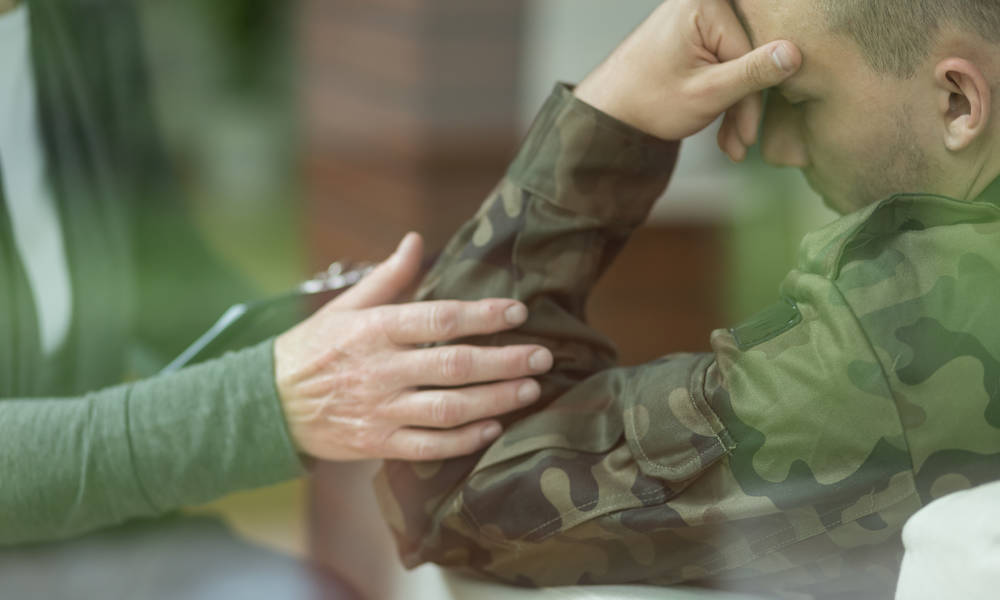
AMVETS Partners With VA to Address Veteran Suicide Crisis
Following a White House order providing more mental health assistance to veterans, the veterans service group has launched a hotline and more resources to connect those needing help.
According to Veterans Administration research, approximately 20 veterans commit suicide every day. Providing support to veterans at risk has been one challenge—one addressed earlier this year when President Donald J. Trump signed an executive order expanding mental-health services for veterans. Connecting veterans to those services can be another challenge, though, which the veterans service group AMVETS is trying to address through a new program.
The ‘undesirables’ are the ones who need our help the most.
Called HEAL (short for healthcare, evaluation, advocacy, and legislation), the program is centered around a team of registered nurses hired by AMVETS to provide guidance to veterans who call looking for professional mental-health assistance. The professional expertise of the staff sets it apart from other similar services provided by other agencies, said Sherman Gillums Jr., AMVETS chief strategy officer.
“All [hotline staffers] have to be licensed clinicians,” he said. “That’s going to be much different than most hotlines that you’ll call. Even the White House [VA Hotline]—those are volunteers who are well-meaning people and who know something about the military, but not necessarily about clinical matters.”
Staffing up with clinicians—at a reported cost of $700,000—is worth the expense, Gillums said, because that expertise is meaningful to those who are most at risk, something AMVETS has seen since the hotline launched in March. “The issues have ranged from deep debt tied to medical expenses, to denied access to dental care because the VA had not paid the doctor, to a veteran who was suicidal because he faces a prison sentence,” he said. “What I’m finding is that the ‘undesirables’ are the ones who need our help the most. These are people were let down by other programs and had fallen to the margins of society and become invisible. They suffer in silence until suicide is the only way out.”
AMVETS began talking with the VA about a potential partnership last year, Gillums said, to discuss “how the agency’s resources and AMVETS’ access to veterans across the country could be combined for greater effect.” The VA and AMVETS (which accepts no federal funding) are still negotiating details about responsibilities within the HEAL program, but Gillums said that better sharing of information will be key to the relationship. “We talked about ways the VA can better track data and achieve greater consistency in how mental health programs are administered across the country,” he said.
Currently, the hotline is available 11 hours a day on weekdays, but AMVETS hopes to expand it to a 24-7 service in the future, and with more attention to social media—where many of the at-risk veterans are most accessible. Gillums said he expects word of mouth, particularly online, will help attract more calls, making the case for the expansion of the program.
“Some days, the calls are sporadic and some are really busy, but it takes time to case manage each call,” Gillums said. “So we will probably need to expand at some point.”
(KatarzynaBialasiewicz/iStock/Getty Images Plus)






Comments